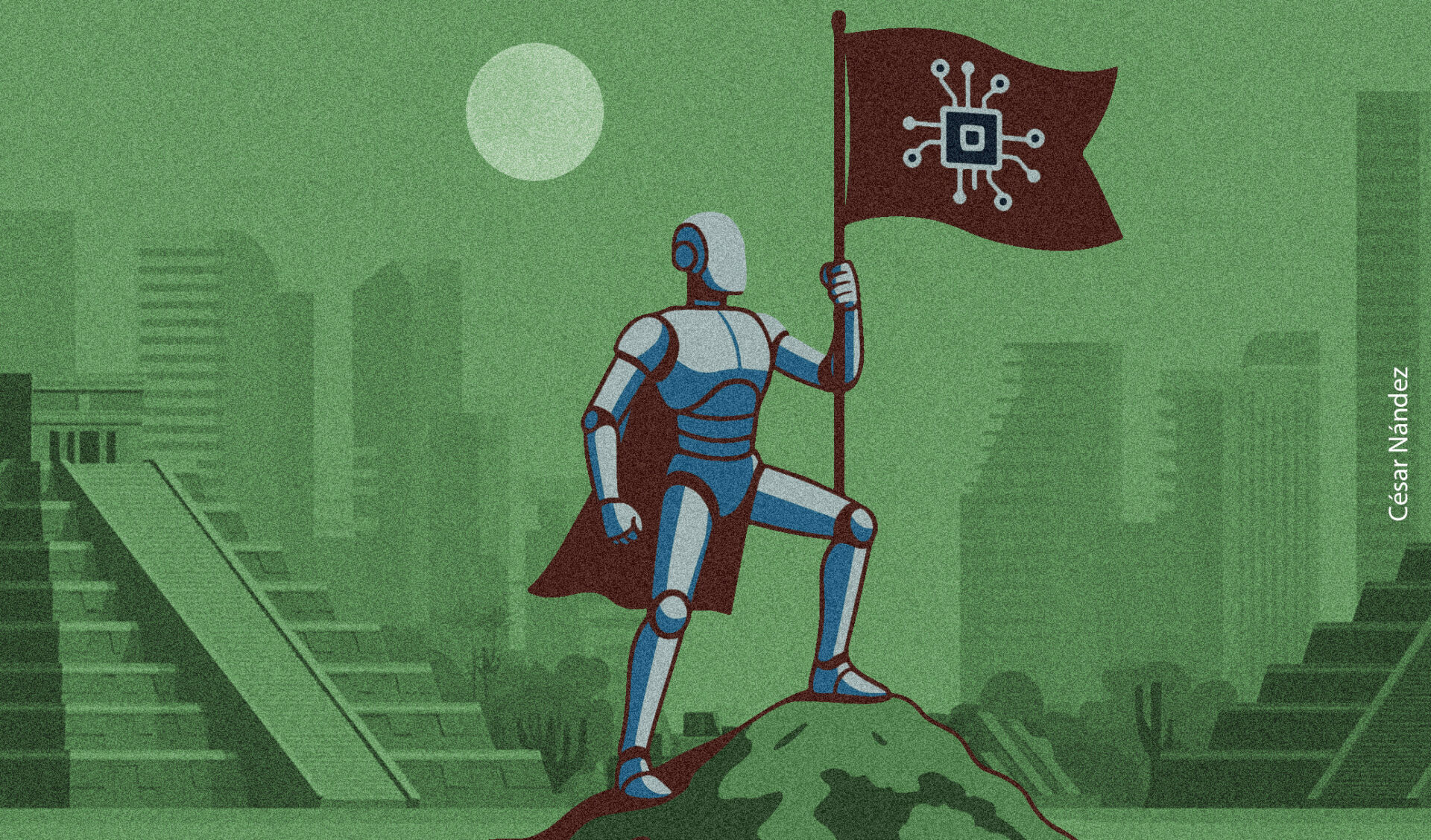At the threshold of a new technological era, Latin America watches with a mixture of hope and fear as artificial intelligence advances. In official speeches and business forums, the refrain is enthusiastically repeated: the region must jump aboard the innovation train. But in the streets, workshops, and classrooms, the question is different: who is really designing the future of our jobs? For if Latin American history teaches us anything, it is that technological revolutions, when they arrive without policy and without equity, tend to widen the distance between those who decide and those who obey.
Recent data from the International Labour Organization are telling. Between 26% and 38% of jobs in Latin America and the Caribbean could be affected by the rise of generative artificial intelligence. Of that total, between 8% and 14% could experience productivity gains through the use of automation and analysis tools, while between 2% and 5% risk disappearing altogether. Behind those percentages are real people: administrative workers, technicians, salespeople, teachers, or freelancers.
Artificial intelligence is quietly reshaping tasks, hierarchies, and opportunities. And in a region marked by structural inequalities, the impact will not be uniform. While large urban companies can invest in training, connectivity, and digital transformation, millions of informal workers, young people without access to technical education, or rural communities without stable internet remain outside the map of progress. The World Bank estimates that between 30% and 40% of jobs in the region are exposed to the effects of AI, and that up to seventeen million workers might not benefit from it due to lack of digital infrastructure or adequate skills.
The paradox is that, on a continent that exports talent, the vast majority of its population remains a passive user of technologies designed and governed by other regions. The dilemma, then, is not only economic or labor-related, but political. Who defines the rules of the game in this new industrial revolution? The tech corporations that develop language models and control data already set the pace of change, while governments, universities, and local communities seem to be running behind, trying to understand a phenomenon that is advancing faster than laws and budgets.
In the most advanced countries of the region—such as Chile, Brazil, or Mexico—national artificial intelligence strategies have already been launched. However, few include real mechanisms for governance or citizen participation. Policies tend to focus on promoting technological adoption without asking who controls the algorithms, how personal data are protected, or what happens to displaced workers. In other words, we talk a lot about innovation but little about technological evolution.
A looming risk of digital dependency hovers over Latin America: just as in the 20th century the region depended on the import of industrial machinery or military technology, today it could become trapped in the import of algorithms. We consume platforms that do not reflect our languages, our values, or our realities. If we do not develop our own models, artificial intelligence will end up being a new form of colonialism—one that does not dominate territories but data.
More initiatives must be promoted, such as the one launched in June 2025, when several Latin American countries jointly announced the development of a regional language model, Latam-GPT, designed to incorporate expressions, accents, and contexts specific to Latin American Spanish and Portuguese. This is not merely a linguistic matter, but a cultural and political one—an opportunity to ensure that our algorithms learn from us, and not only from foreign databases. If this initiative succeeds, it could mark the beginning of regional technological sovereignty—a concept that Latin America has lacked for decades.
Beyond innovation, the crucial debate remains social. In an economy where nearly half of all jobs are informal, automation could be devastating if not accompanied by active policies. The most vulnerable sectors—administrative services, retail, customer service, logistics—are among the most exposed. In many cases, AI replaces tasks rather than entire workers, but labor fragmentation can erode the stability of millions of households. Without safety nets, retraining programs, or support for entrepreneurship, the technologically displaced will be condemned to precariousness.
The other side of the issue concerns the invisible workers behind artificial intelligence—those who label, correct, or validate data from Latin America to feed global models. Venezuelan, Argentine, Ecuadorian, and Brazilian talents, among others, perform that remote, precarious work for minimal wages. It is the paradox of a region that, while debating the future of work, already sustains part of the global digital economy under nineteenth-century conditions.
If Latin America wants to turn this crisis into opportunity, it must act now. The first step is to define national AI policies with a social—not merely productive—focus. Artificial intelligence cannot be only a matter of business innovation; it must include strategies for mass training, inclusive connectivity, technological education, and ethical regulation. Without broad digital literacy, most of the population will remain trapped between fascination and fear.
Digital infrastructure continues to be the major bottleneck: there is no inclusion without access, and no equity without inclusion. Investments in fiber optics, 5G, and satellite networks should be considered as strategic as highways or energy projects. Similarly, education requires a content revolution aimed at preparing new generations in algorithmic thinking, data ethics, and digital creativity—not just the instrumental use of technology. Smaller countries like Ecuador or Uruguay could find a comparative advantage in this transition if they bet on agile policies and partnerships with universities, startups, and local governments. Ecuador, for instance, could promote an AI strategy focused on its structural challenges such as water management, sustainable agriculture, disaster prevention, or rural education. If the country manages to link technology with social purpose, it could become a regional benchmark for inclusive innovation.
The ethical component is equally urgent. Citizens have the right to know when a public decision has been mediated by an algorithm, how their data are used, and what biases exist in the models that affect their lives. Algorithmic transparency and independent audits should be part of the democratic agenda. Artificial intelligence should not replace politics—but improve it.
For these reasons, the great Latin American challenge is not to learn how to use artificial intelligence, but to decide what we want to do with it. If we allow innovation to advance without direction, we risk deepening our inequalities. But if we turn it into a tool for human development, we could face a historic opportunity for productive and educational progress.
In this crossroads, the role of universities, scientists, and public thinkers will be decisive. We need voices that connect technology with ethics, productivity with justice, innovation with empathy. The future of work cannot be designed from laboratories disconnected from social reality. Artificial intelligence confronts us with a moral and political question: Do we want a technology that replaces us—or one that complements us? The answer will depend on whether Latin America chooses to be the author or merely the spectator of its own future.













